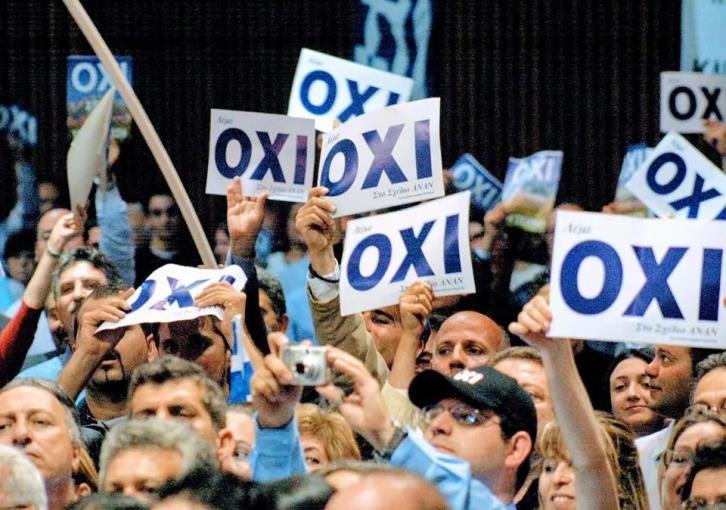
& nbsp & nbspKostas Venizelos & nbsp; & nbsp;
One year after the April 24, 2004 referendum on the Annan plan, the United States Embassy in Nicosia proceeded, based on public opinion polls and contacts, to evaluate the outcome. It focused on the behavior of young people and their attitude towards the United Nations plan. The evidence that the Americans had before them is interesting, as well as their own analysis. Their point of view and their own explanation are presented in a telegram, signed by the then ambassador Ronald Sliger. The American diplomat, who passed away in September 2019, at the age of 63, had just taken over the embassy in Nicosia, in December 2005 (until 2008), sent this telegram. & Nbsp;
The telegram is based on public opinion polls, some of which were funded by the embassy, but also on estimates by Greek Cypriots and Turkish Cypriots, for the reasons that led to the result of the 2004 referendum. the future of the country. As mentioned in this regard, the age group 18-24 of Greek Cypriots voted “No” with a ratio of nine to one. According to the interpretation given, Greek Cypriot youth adopt a harder line than their parents and are less “flexible” than Turkish Cypriots of the same age group. Greek Cypriots are less willing to compromise on the terms of a settlement (possibly the one before them). & Nbsp;
SEE ALSO: & nbsp; US with Turkish stamp requests FA – “Ideas” from Ankara
The analysis of the embassy goes on to explain this attitude of the young Greek Cypriots. The elements of the investigation, as they emerge from the telegram, are reinforced by the views of citizens, with whom people from the embassy spoke. It is clear that the key parameter is missing from the analysis: That young people live in a semi-occupied country and want the occupation data to be removed. They want to live in a free homeland, like their peers in other countries. The embassy considers the education system and the teachers, the anti-Americanism, the Church, the National Guard “responsible” for the attitude of the young people.
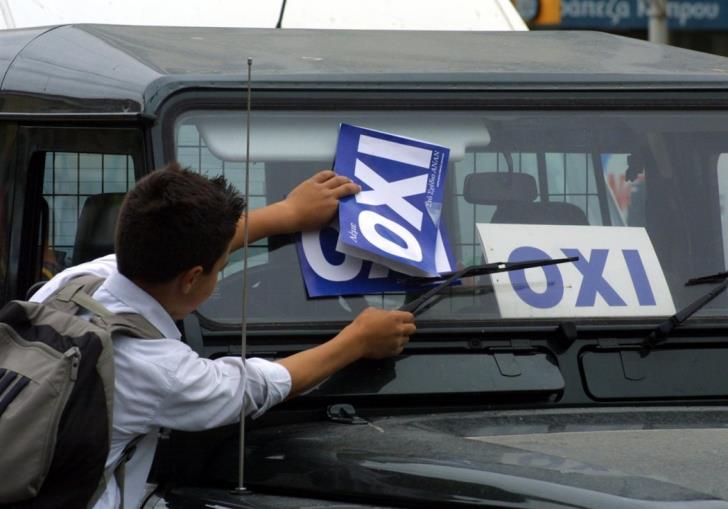
“A large part of the problem is undoubtedly the education system, which is highly politicized and clearly presents a one-sided view of recent Cypriot history. In addition, young people in Cyprus do not have memories of a single island with mixed communities. Few have friends on the other side or a personal connection to the old family in the north. We have spoken to a large number of young people, educators, academics and journalists about the attitude and political tendencies of young people in Cyprus – especially from the Greek Cypriot side – and what can be done to ensure that this generation remains committed to an achievable settlement. of the Cyprus problem “, is mentioned in the summary of the telegram.
According to the telegram, “in the extensive efforts to approach the embassy, we have learned, to our regret, that the young public is the most difficult. Greek Cypriot high school students and students generally have a tough stance on the Cyprus issue. They have adopted and relied on their parents' anti-American attitudes to a point of voluntary ignorance. Available poll data, including some of our own, confirm this. In the April 2004 referendum on the Annan plan, more than 90% of Greek Cypriots aged 18-24 voted “NO” to the settlement plan. “& Nbsp;
Americans have spoken to young people and reportedly they have a sense of injustice, which affects their perception. As one student put it during a presentation at a political science course at the University of Cyprus, “we have international law on our side; justice must be done”. & Nbsp;
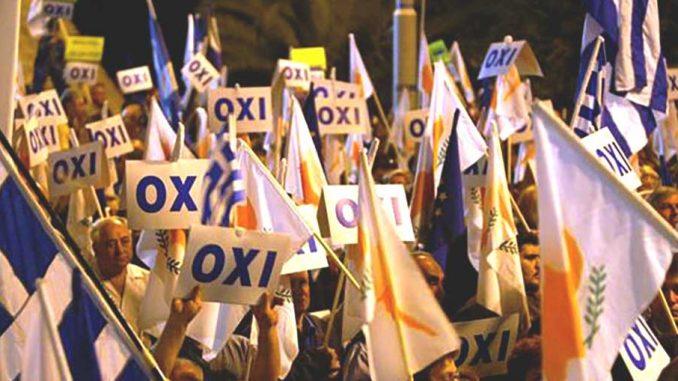
Another point that emerges is the fact that the politicization of the Greek Cypriot youth begins early. In this, as mentioned, both the family and the education system play a role. “School teachers to a large extent have a Greek-centered orientation. Most professors have studied at universities in Cyprus or Greece rather than in the United Kingdom or the United States. The available teaching material is largely outdated, even for the Greek data, and reflects nationalist feelings of intolerance that were more mainstream half a century ago. The students are instructed to prepare works for the Turkish atrocities that date back to the Ottoman period, but with special attention to the events of 1974… ». & Nbsp;
The embassy does not avoid temptation and refers (why 😉 in the fact that the parking lot may be full of BMWs and students dressed in the latest fashion, but victimization runs through the curriculum! & nbsp;
Moreover, as it is stated, “students are taught that their roots are in Greek culture, in Pericles rather than in Byzantium, and that the Greek ideal represents the most important and good thing in Western culture.” & Nbsp;
A middle-aged teacher explained his thought (to embassy people as referring to “us”) as follows: “Atillas can not be trusted. The Turks will inevitably move south, either through war or a solution to the Cyprus problem. It is our responsibility as teachers (sic) to ensure that our students are prepared. “& Nbsp;
There is, however, some room for self-criticism, as noted in the telegram. In a recent embassy-sponsored poll, 31% of Greek Cypriots agreed that the education system plays a negative role in efforts to resolve the Cyprus problem. & Nbsp; OF YOUNG PEOPLE, & nbsp; ACCORDING TO AMERICA
For Greek Cypriot men, 25 months of compulsory military service is the norm and, for most, represents a significant shaping experience, as mentioned in the analysis, to add that there are no deferrals (ie first studies and then military service). Even men of Cypriot origin born abroad are subject to conscription if they visit Cyprus. “Learning to hate the enemy is part of the training program of the Greek Cypriot National Guard and time in the army clearly hardens attitudes towards Turkey, the Turkish Cypriots and the settlement efforts,” it said. According to the telegram, a young man who had recently completed his service in the National Guard, “told us that his time in the National Guard made it clear to him that his feelings were being manipulated by his officers” and that “against his military service had been alienated from his own (progressive) political beliefs. ” According to the embassy, one factor that could help explain the extremely high percentage of “no” voters in the 18-24 age group is that many of the men were either current EF soldiers. or had recently completed their term. Meanwhile, many of the Greek Cypriot students at foreign universities – who are reasonably expected to be in the most progressive political environment – did not return to the island to participate in the referendum, the Americans said in their analysis, which is based on assessments and views. that they hear from their regular Greek Cypriot interlocutors.
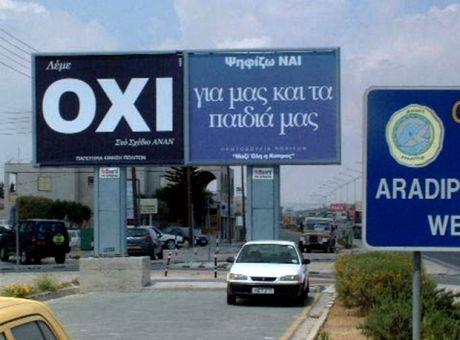
The US embassy's finding starts with a basic belief. That there is no doubt — as they note — that young Greek Cypriots are much more religious than Turkish Cypriots. Moreover, as noted in this regard, the Cypriot Orthodox Church is significantly more political than religious institutions in the north. Even the Greek Cypriot Communist Party, it is reported, does everything to establish and maintain close relations with the Church. AKEL leader Dimitris Christofias, for example, has two portraits on the wall of his party's office, Vladimir Lenin, and an icon of St. George (this does not seem to be confirmed by D. Christofias's associates whom we asked about). & nbsp;
With a few exceptions (namely Bishop Morphou), Church leaders made no secret of their opposition to the Annan Plan. The Bishop of Kyrenia warned his flock that his “yes” voters were traitors to Cypriot Hellenism and “would not inherit the kingdom of heaven.” A youth member of the opposition DISY party (the name is mentioned), told us that he saw a clear correlation between “religiosity” and views on the Annan Plan, with the most religious members of his organization being more willing to reject the settlement “. One academic (also named) believed that “the current incapacity of the Archbishop further limited the Church's ability to compromise. “History and dogma predispose the Church to hard-core attitudes in the Cyprus issue and only a strong Archbishop – who is missing at the moment – could push the Church in a different direction.” & Nbsp;
The visits to the occupied territories, the “selfishness” of the Greek Cypriots and the “hereditary” refugees
With the opening of the roadblocks in April 2003, it became possible for many young Cypriots to visit the “other side” for the first time in their lives. Up to half of them in our basic demographics 18-24 have done it, but half of them have only done it once or twice, the telegram points out. As reported, “X, a 23-year-old aspiring teacher, told us that she would never go north until she did it” as a free Cypriot “to regain her family home in a village near Morphou.” The telegram then refers to the refugees: “In social – if not legal terms – the refugee status is hereditary and spreads to the population as a dominant gene. In a recent poll, almost 60% of young respondents said they were “from refugee families”. & Nbsp;
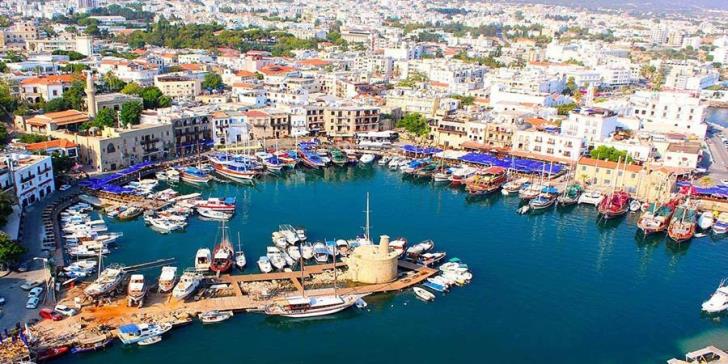
Regarding the behavior of the young Greek Cypriots and Turkish Cypriots, the American analysis states that while it is considered “cool” among the young Turkish Cypriots to go south for one night in the city, few Greek Cypriots do (s.s. to go to the occupied territories). The opening of the roadblocks has allowed older Cypriots to re-establish relations with friends and former neighbors on the other hand, but their children seem to have little interest in building new ones, as noted. & Nbsp;
The The exception seems to be “those young people who have made a positive choice to participate in bi-communal activities, including those supported by US funding”. & nbsp;
Turkish Cypriot youth are generally, as argued, less rigid and less dogmatic than Greek Cypriot youth. However, it is difficult to identify the reasons why this happens. According to the telegram, a Professor at the “University” of the Eastern Mediterranean described the Turkish Cypriot youth as “lost”, trapped between Turkish and Cypriot identity without the ability to accept the correlation with either of them as a natural match. Turkish Cypriot youth simply do not feel “Turkish” as Greek Cypriot youth feel “Greek”. Like it or not (s.s. and obviously do not like it), young Turkish Cypriots also understand that they are the ones at a disadvantage from the status quo. More than one young man in the north told us he voted “yes” to the plan, not because he would reunite the island but because he represented change. A young academic (name given) said she supported the Annan Plan, even though she expected it to eventually collapse. Cyprus' entry into the EU has brought the outside world temptingly close. Mostly, the young people in the north are fully aware of the attitude of the Greek Cypriots; the Turkish Cypriot youth are largely of the opinion that the Greek Cypriots selfishly seek to protect their privileged position and do not want to share the fruits of domination their cousins in the north, is noted in the form of comments on the analysis of the US embassy in Nicosia. & nbsp;
It goes on to say that almost everyone working for a solution to the Cyprus problem is concerned about the attitude of young people, especially on the Greek Cypriot side. The nature of the problem seems quite clear. The question of $ 64,000 (CYP 30,976 at today's exchange rate) is: “What can be done about it?”
“The bi-communal activities supported by the embassies are a start and seem to make a difference, but they only affect a limited part of the population. Reforming education systems on both sides of the “Green Line” remains a high priority. We have heard from more than one conflict resolution expert who has visited the island that while young people's behaviors are often more hardcore than their older ones, they are usually easier to change. We have put a lot of thought and energy into programs specifically aimed at teaching history and we intend to step up these efforts. Changing the attitude of even a single teacher has significant wave effects in an entire community, especially in efforts to reach new people outside of large urban centers. The same could be said for programs aimed at improving the quality of teaching materials. There is no escaping the fact that this generation of young people will one day grow up and take the reins of power in Cyprus. “Whether the Cyprus issue is resolved or not up to that point, the attitudes of today's youth will help a lot in shaping the reality of the island's future.” & Nbsp;




